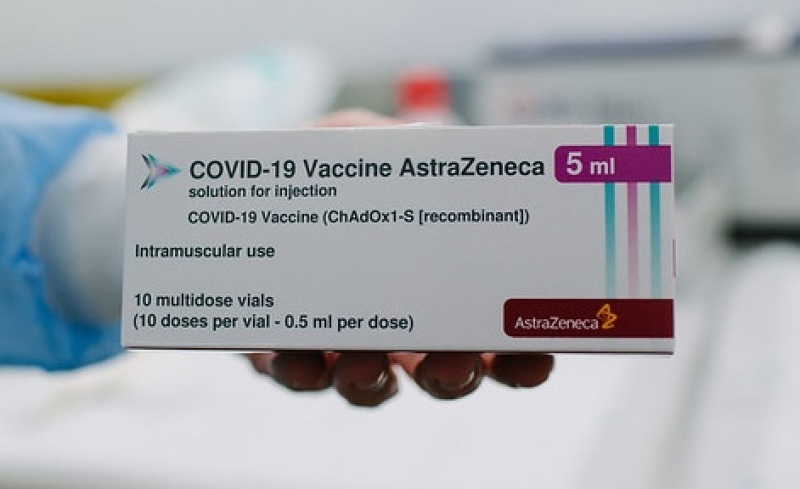
A study says that people infected by COVID-19 are more likely to suffer from blood clotting than those who got vaccinated.
From a study published by Oxford University, the risk of rare blood clotting or cerebral venous sinus thrombosis (CVT), is "up to 10 times greater after becoming infected with the coronavirus than it is after receiving a shot," reports the New York Post.
Paul Harrison, head of Oxford's Translational Neurobiology Group, said that "[findings] should be taken into account when considering the balances between risks and benefits for vaccination."
The methodology of the said research states that the researchers have looked into the number of blood clotting cases two weeks after people were diagnosed of COVID-19 infection. Subsequently, they also examined similar cases of blood clotting among those who received a single dose of the Pfizer, Moderna and AstraZeneca vaccines.
Between the two, their study found that compared to receiving the Pfizer or Moderna shots, the risk of a CVT condition from a COVID-19 infection is ten times greater. The likelihood is also eight times greater than after being administered with an AstraZeneca jab.
The breakdown for the said reported cases of CVT state that from the "500,000 COVID-19 patients, CVT occurred in 39 in a million patients." In comparison, out of the "over 480,000 people receiving a COVID-19 mRNA vaccine (Pfizer or Moderna), CVT occurred in 4 in a million." As to the AZ-Oxford COVID-19 vaccine, "CVT has been reported to occur in about 5 in a million people after first dose."
'We've reached two important conclusions," said Harrison. "Firstly, COVID-19 markedly increases the risk of CVT, adding to the list of blood clotting problems this infection causes. Secondly, the COVID-19 risk is higher than we see with the current vaccines, even for those under 30.
Two other findings from the study that must be also noted are: CVT risk was more likely on people who already had cardiovascular disease, and that 80% of patients who suffered from CVT survived.
Oxford, however, sets a disclaimer that the data is still developing so it must be interpreted with caution. Additionally, the study's central premise was to see the risk of CVT following a COVID-19 diagnosis.
Precision is also not assured in the given initial results for reasons being that the data for AstraZeneca vaccine "came from EMA monitoring" while the rest were from the "TriNetX electronic health records network." The statement also agreed the possibility of "under-reporting or mis-coding of CVT in medical records."
Oxford's official statement also mentioned another important factor that needs considering. That is whether COVID-19 and vaccines lead to CVT by the same or different mechanisms. This will require a more thorough research.
The Johnson & Johnson vaccine was not included in the Oxford study which to date, remains on pause says the NYPost. The halt was after a 45-year-old woman from Virginia died after suffering from severe headaches and bleeding on the brain two weeks after she received a J&J shot. Other symptoms of blood clots include abdominal pain, leg pain, and shortness of breath.





























